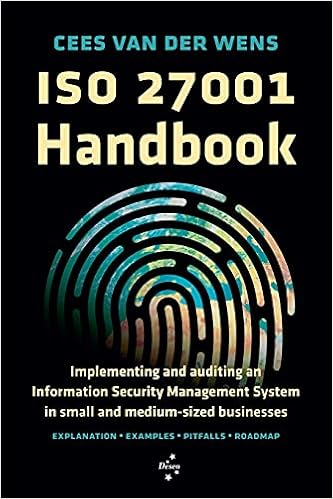
Anyone with an interest in information security will have encountered ISO 27001, the international standard that describes best practice for an ISMS (information security management system).
However, you might not be as familiar with ISO 27002. It’s a supplementary standard that provides advice on how to implement the security controls listed in Annex A of ISO 27001.
Although ISO 27001 is the more well-known standard – and the one that organisations certify to – neither can be considered in isolation. This blog explains why that’s the case, helping you understand how each standard works and the differences between them.
What is ISO 27001?
ISO 27001 is the central framework of the ISO 27000 series, which is a series of documents relating to various parts of information security management.
The Standard contains the implementation requirements for an ISMS. These are essentially an overview of everything you must do achieve compliance.
This is particularly useful at the start of your project, or if you’re looking for general advice but can’t commit to a full-scale implementation project.
To meet these requirements, organisations must:
- Assemble a project team and initiate the project;
- Conduct a gap analysis;
- Scope the ISMS;
- Initiate high-level policy development;
- Perform a risk assessment;
- Select and apply controls;
- Develop risk documentation;
- Conduct staff awareness training;
- Assess, review and conduct an internal audit; and
- Opt for a certification audit.
What is ISO 27002?
ISO 27002 is a supplementary standard that focuses on the information security controls that organisations might choose to implement.
These controls are listed in Annex A of ISO 27001, which is what you’ll often see information security experts refer to when discussing information security controls. However, whereas Annex A simply outlines each control in one or two sentences, ISO 27002 dedicates an average of one page per control.
This is because the Standard explains how each control works, what its objective is, and how you can implement it.
The differences between ISO 27001 and ISO 27002
There are three main differences between ISO 27001 and ISO 27001:
- Detail
If ISO 27001 went into as much detail as ISO 27002, it would be unnecessarily long and complicated.
Instead, it provides an outline of each aspect of an ISMS, with specific advice being found in additional standards. ISO 27002 is only one of these. For example, ISO 27003 covers ISMS implementation guidance and ISO 27004 covers the monitoring, measurement, analysis and evaluation of the ISMS.
- Certification
You can certify to ISO 27001 but not to ISO 27002. That’s because ISO 27001 is a management standard that provides a full list of compliance requirements, whereas supplementary standards such as ISO 27002 address one specific aspect of an ISMS.
- Applicability
A key thing to consider when implementing an ISMS is that not all information security controls will apply to your organisation.
ISO 27001 makes that clear, specifying that organisations conduct a risk assessment to identify and prioritise information security threats. ISO 27002 doesn’t mention this, so if you were to pick up the Standard by itself, it would be practically impossible to figure out which controls you should adopt.
When you should use each standard
ISO 27001 and ISO 27002 have different objectives and will be helpful in different circumstances.
If you’re starting out with the Standard or are planning your ISMS implementation framework, then ISO 27001 is ideal. You should refer to ISO 27002 once you’ve identified the controls that you’ll be implementing to learn more about how each one works.
Learn the basics of information security
You can find out more about how to implement a best-practice ISMS by enrolling on our ISO27001 Certified ISMS Foundation Training Course.
This one-day course provides a comprehensive introduction to the key elements required to comply with ISO 27001. You’ll learn from expert information security consultants and have the chance to review case studies and participate in group discussions and practical exercises.
Developed by the team that led the world’s first successful ISO 27001 implementation project, this one-day course provides a comprehensive introduction to Standard.
You’ll learn from expert information security consultants, as they explain:
- ISO 27001 management system documentation;.
- How to plan, scope and communicate throughout your ISO 27001 project; and
- The key steps involved in an ISO 27001 risk assessment.
Source: ISO 27001 vs. ISO 27002
Previous blog posts on ISO27k
Pentests are required for ISO 27001 or SOC2 audits
With ISO27001 how you should choose the controls needed to manage the risks
The importance of the Statement of Applicability in ISO 27001 – with template
Steps to implement ISMS (ISO 27001)
How FAIR & ISO 27001 Work Together
ISO 27001 Handbook: Implementing and auditing an Information Security Management System in small and medium-sized businesses




